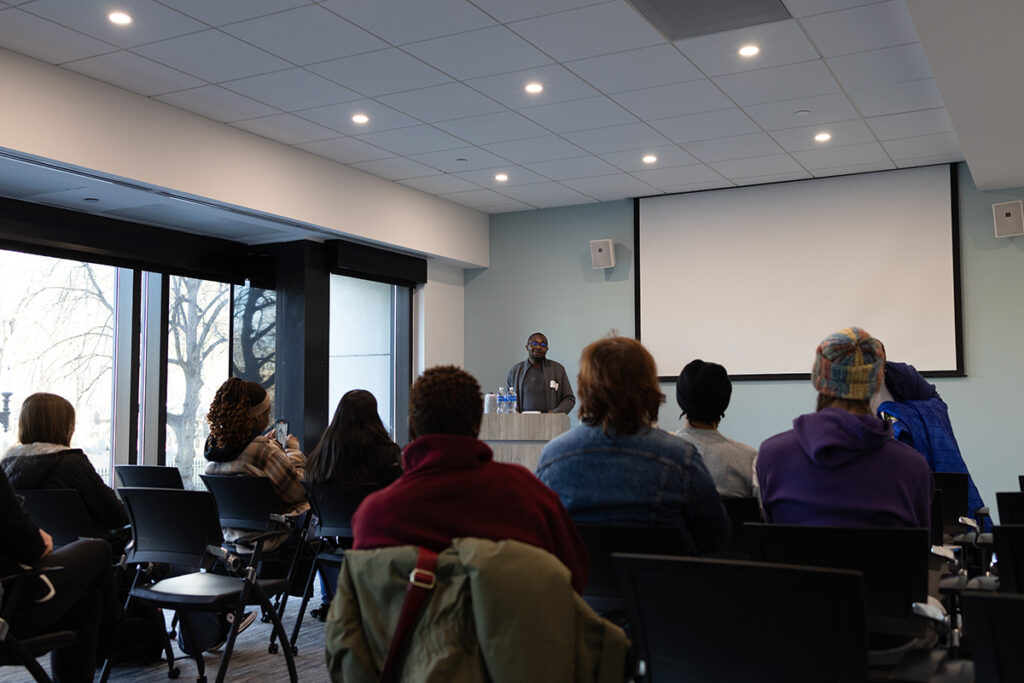Teach-In on Race: Filmmaker Explains Nigerian Film Industry

Filmmaker and director Rahman Oladigbolu took the audience inside and outside the boundaries of the Nigerian film industry during a Teach-In Race session he led on Thursday, February 8.
On Wednesday night, February 7, his film, In America: The Story of the Soul Sisters was screened. The following morning, in Boundary-Crossing and Boundary- Breaking in International Filmmaking, Oladigbolu talked about what it takes to make a film in his native Nigeria, his path to filmmaking, and the intersection of “Nollywood” and Hollywood.
“When I thought about coming to America from Nigeria, the only thing that made me thinking of coming to America was just to learn to make films. That was it. I didn’t know anything about America,” said Oladigbolu.
He’s been here for 25 years now, and he’s seen the growth of Nollywood, as Nigeria became the second-largest film industry in the world, behind India. But he doesn’t like the term, because a New York Times reporter coined term in 2002, and he would’ve preferred an organic name from industry insiders.
The modern birth of Nollywood and its mass production was done out of economic need, not necessarily artistic pursuit, said Oladigbolu.
“Someone would make a film, and all the tapes flew off the shelf. The new film industry was not by filmmakers, but by people wanting to make money and sell something,” said Oladigbolu. “They would pick up a camera and filmed whatever they could film. They just wanted to produce as many films as possible. That’s how they made money.”
He estimated that about 2,000 films are made a week in Nigeria, and a lot of that is because producers are not worried about content.
“A filmmaker can make a film in a few days by starting on Monday, and by the next Monday, the tapes are out and being sold. Because of piracy, people were buying them, copying them, and making money from efforts of producers and filmmakers,” said Oladigbolu. “It’s grown to a remarkable stage that you have other institutions and enterprises paying attention and wanting to get a slice of the cake.”
Knowing that Nigeria has a population of more than 200 million, Netflix and Amazon have shown up to the cake with forks and knives.
“Some filmmakers have secured great deals. Filmmakers don’t need to be promoters as much because of Netflix. Netflix initiates projects by themselves, indicating standards and what they want,” said Oladigbolu. “The margin is at least comfortable now, even with pirate taping still happening.”
Nollywood’s impact on the Nigerian economy is noticeable, and industries outside of film pay attention to it.
“The Nollywood industry shows the resourcefulness of individuals. It shows what you can get when you invest in a country’s resources,” said Oladigbolu. “We take pride in telling our Nigerian stories.”
He’s also enjoyed the streaming platforms, and seeing more from the South Korean and Indian film industries.
“It’s a better and beautiful world,” said Oladigbolu. “And we need to work hard to make it equitable for everyone. It translates to the power of telling your story and be a filmmaker in the world. Not someone who can make quick bucks. All these stories open the mind of the world.”
Categories